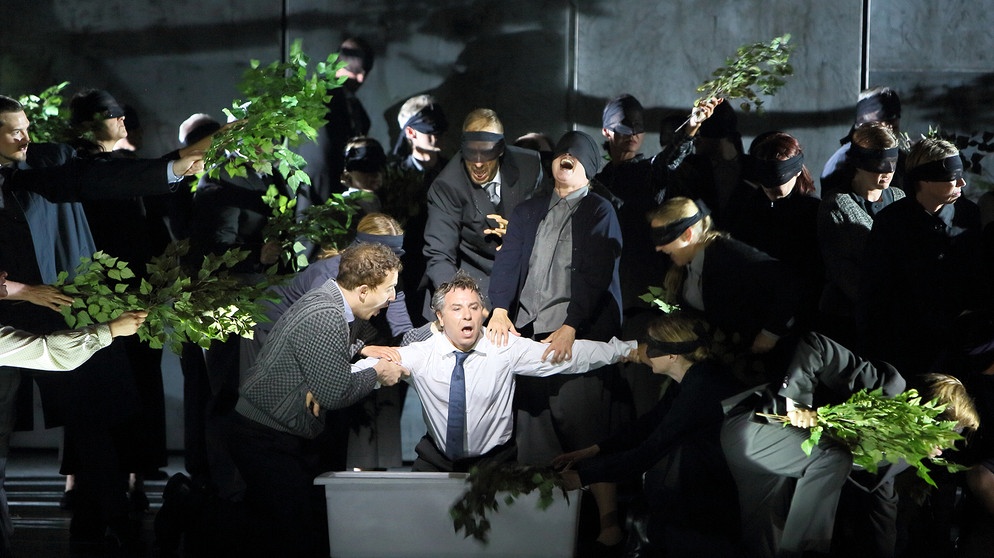Fromental Halévy La Juive at the Bayerisches Statsoper, Munich last night - horribly, frighteningly pertinent to events this week - and last week, too, when MP Jo Cox was murdered. Yet already Farage claims "no shots were fired" in his adventure. Now it seems that the whole country has been murdered, too, poisoned by an eruption of dishonesty and sheer bloody-minded pettiness. This isn't "democracy" but a spilling out from the hell of the Universal Troll. In La Juive, everyone gets destroyed, whatever their faith, whatever their station.
This production, by Calixto Bieito, pulls no punches. No comic-book costumes to distance us from the brutal message. These terrible things can happen anywhere, at any time and on all sides of the political spectrum. No one is immune. Just as conductors have individual styles, so do opera directors. Bieito is the one to go to for insights on social issues. His Carmen (more here) highlighted the cruel objectification of women. His Aida reminded us that there are slaves in modern society : we call them the underclass, especially if they're the wrong race. And his Fidelio (more here) was so powerful that audiences couldn't figure it out, though it was a lot truer to Beethoven than they realized. Bieito shocks, but he does so for constructive purpose.
So we don't see a palace, but that kind of luxury can hide the brutality within? Instead we see hard "stone" walls and massive columns that lean down oppressively over proceedings, a subtle reference to the Gothic arches in the stage directions. Roberto Alagna, singing Eléazar, looks anonymous, moving furtively, almost in disguise behind hat and dark glasses. As a hunted refugee would. When he does start to sing, however, the glory of his voice asserts itself, conquering the grimness around him. Alagna is an idol but here he's a true artist. Eléazar shines, not the "star". He's a decrepit old man but what he represents is something finer than what the Emperor and Cardinal de Brogni stand for. Aleksandra Kurzak sings Rachel,. She's dressed in green, so she stands out from the hard black and white around her. Green, too, symbolic of freshness and renewal. When she's killed. a lot dies with her, including the Cardinal's soul. John Osborn sang Prince Léopold and Vera-Lotte Böcker sang Princess Eudoxie. The simplicity of Bieito's set concentrated attention on the human drama , and on the music. Bertrand de Billy conducted well, but the singers - especially Alagna - were able to dominate.
Last night someone who doesn't have prejudices about what opera "should" be, wondered why Bieito is considered controversial. A perceptive observation, since Bieito's approach goes straight to the heart of the opera, no messing about. This was an overwhelming experience, so strong in fact that I couldn't bring myself to write about it, in view of the events of this weekend. But read Opera Traveller's account HERE. he says it so well.

No comments:
Post a Comment